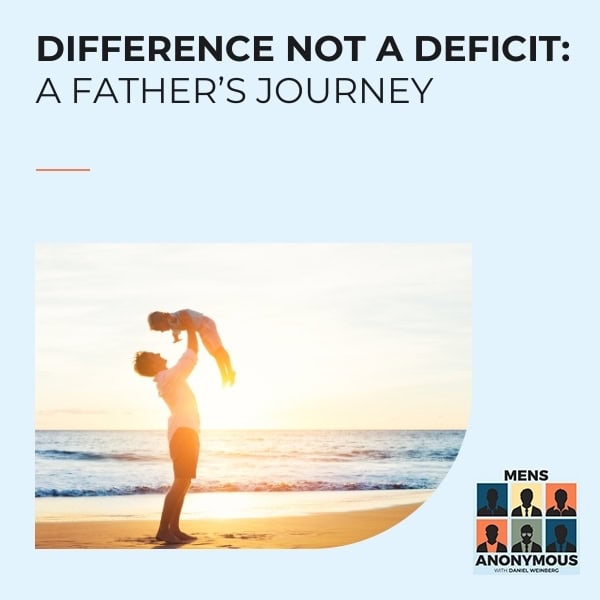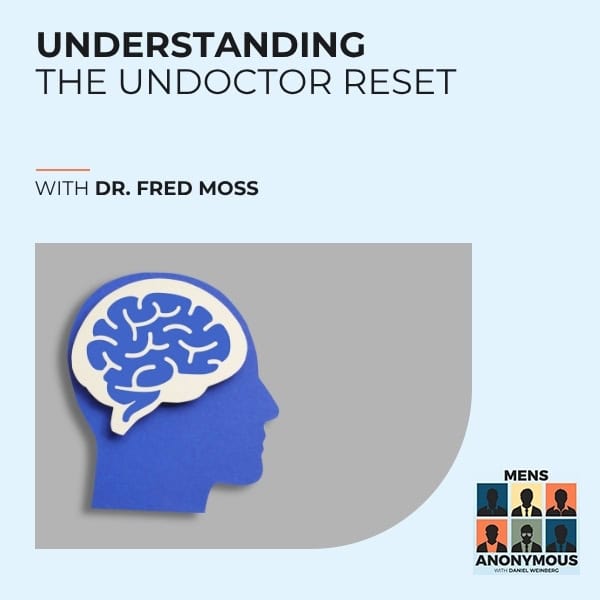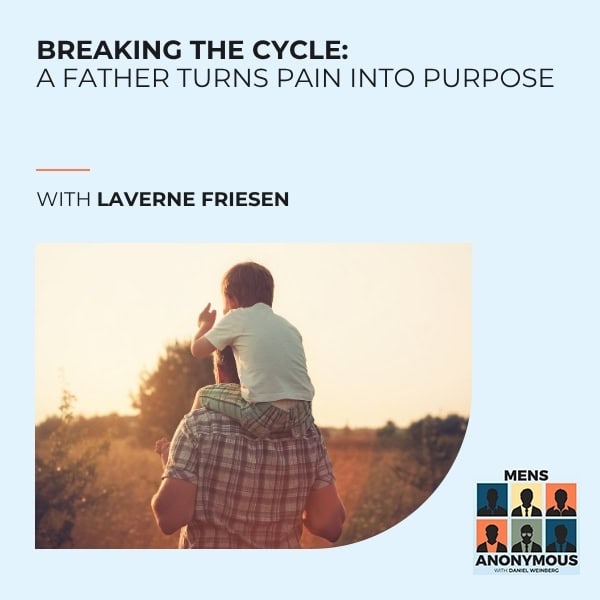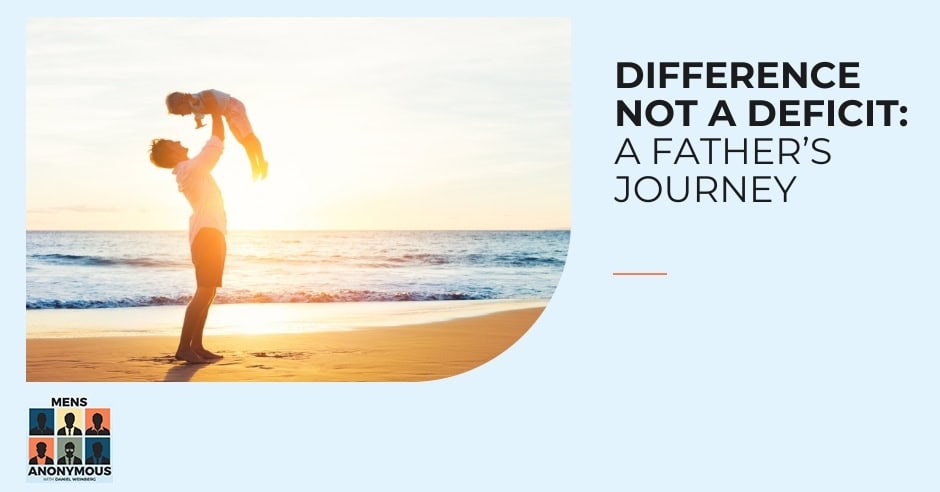
Being a parent is indeed challenging – what more if you have to look after a child with special needs? Daniel Weinberg sits down with “Joe,” who shares what it is like to be a father to a child on the neurodiverse spectrum. He shares the different tools and approaches he uses to fully understand his son and make him feel loved at all times. Joe also talks about the importance of getting the right support as a parent, how he maintains healthy personal relationships, and his biggest takeaways in dealing with his own inner battles.
—
Watch the episode here
Listen to the podcast here
Difference Not A Deficit: A Father’s Journey
On this episode of the show, we have one of our anonymous men talking about their journey of being a father of a neurodivergent child and the complexities that come with that. I hope you enjoy this episode.
‐‐‐
Joe, it is so good to have you on the show.
Thanks for having me. It’s great to be here.
To set the scene for the audience, Joe is an alias name. Our interviewee will be recorded on an anonymous basis for personal reasons. I’m very grateful to have Joe on the show as we explore a very interesting topic, which is relevant in this world. I thought it would be extremely valuable to gain a better understanding of what it’s like to parent a child with special needs. We’re going to know about Joe’s journey and also explore the different tools that have been implemented. Hopefully, it’ll be a very interesting conversation.
Raising A Son On The Spectrum
Thank you so much for making the time for us. I want to start off by asking how long you’ve been married or how long you’ve been with your partner. We got married in 2016. We’re almost coming on ten years.
How many children do you have?
I’ve got two children. I have a son who is 7 and a daughter who is 5 years old. I had my first child when I was 40 years old.
Your son or your daughter is the one with special needs.
My son is on the spectrum.
Explain, or rather describe his situation, and then we’ll go over the journey around that.
Maybe I’ll start at the beginning. When my son was one year old, we started to pick up some early red flags. He wasn’t pointing. He was a bit late in the development of making sounds and things like that.
When you say he wasn’t pointing, can you expand on what the significance of pointing is?
Yeah. These are things that we didn’t know about at the time, but we started seeing things that he kept on doing. One of them was that he was spinning around in circles quite a lot. I thought, “That’s fine. He is having a good time.” The other one was that he started having obsessions with doors and anything that closed. He would spend hours at these doors.
When you say hours in the doors, what do you mean?
Closing and opening, and then also sequencing. He was getting everything in order.
What age are we talking about? At one year old?
This is one year old. I’ll tell you what happened. When he was 0 to 1, we didn’t notice anything. I would take him in a pram around the block. I was saying words like orange, and he would say orange. I was saying many different words, and he was repeating them. All of a sudden, after about a year, he stopped repeating after me. It started to make me a little bit worried. I started to dig a little bit deeper into what could possibly be the reason.
Did you take your son to the pediatrician?
I’ll explain what I mean by not pointing. I looked at some of the things that occur usually in autistic kids. When they see something, they don’t use the pointing finger to point at it. I would say to him, “Where’s the cat?” or, “Can you show me where the door is?” Our natural instinct, if you’re not neurodiverse or on the spectrum, is to point. That was already a bit of a red flag for me.
I went to a pediatrician. Maybe she saw him on a good day because she was like, “Your son is fine.” He’s still a very cheerful, bright, curious, and funny kid, but she hasn’t seen the different size that we saw. We said, “That’s fine.” After another month, we realized, “Something is not right,” because we’ve got lots of our friends’ kids that are the same age.
You were starting to see the dissonance between their development and your son’s development. Can you maybe highlight a couple of those things?
Yeah. It was the other children wanting to play together, and he always wanted to be on the outskirts.
Why did you see that as being unusual behavior?
I don’t think it was just that. I think it was the culmination of not pointing, the circles, and some of the obsessions. Also, one of the big red flags is not responding to your name. With all the other kids, they would shout, “Jack,” and Jack would look at the mom or the dad. With Aiden, he wouldn’t hear it. It became a bit of a red flag for us when he wasn’t responding to his name.
You and your wife as parents, I can only imagine it would be quite stressful not knowing. Your mind starts going in all directions because you are unsure, number one. You know that there’s something that is not right. You’ve gone to a doctor, and the doctor said, “Your child is normal,” but as parents, you know.
We decided to take him to someone. I forgot the name, but she is the person who assesses any child who could be on the spectrum.
Looking After A Child On The Neurodiverse Spectrum
I heard you say something. I didn’t pick up the phrase you used. I’ve heard it before. The technical or more precise name to describe all these different conditions is neurologically divergent.
Neurodiverse.
What does neurodiverse cover in general when they say neurodiverse?
It’s quite a big spectrum. It’s everything from what used to be called Asperger’s, which is what we believe our son has, where you are extremely smart and you can be loving and funny, but you are socially awkward, all the way up to low-functioning and high-functioning.
A child on a spectrum can be loving and funny but still socially awkward. Share on XHigh-functioning is like an Asperger’s. They’re fully capable and can go to mainstream school, but they have some issues with socializing. You also get low functioning where they are doing self-abuse to themselves. They’re screaming. They’re nonverbal until they’re twelve years old. It’s such a big spectrum. I look at it like a collared shirt.
You went and had your son tested specifically for where your child is on the spectrum. How old is he at this stage?
He was one year old.
You picked it up quite early.
It was an extremely young diagnosis. Most people get picked up at about 6 or 7. I’ve spoken to an adult who was 40 years old when he got picked up.
The assessment came back. For the assessment, do you recall what they did in the assessment?
Yeah, I was there. She approaches him with some toys, and he will take the toys and turn his back to her. Most kids want to involve you.
They want to interact.
That was one of the things. There were a couple of things I was outside for, but it was things to do with speech. It was gross motor skills. It’s called the CARS assessment. They check off a couple of different things in terms of how a non-neurodiverse child would perform and how a neurodiverse child would perform. My son was on the cusp.
When you say cusp, explain cusp.
There’s a point system to this assessment. Let’s say you were 45 points. You are on the spectrum in terms of high functioning. If you were 40 points, you would be considered normal or non-neurodiverse. He’s extremely high-functioning.
That was the assessment at that time. Once you received that assessment, did they tell you what you needed to do to manage this situation better? What was the follow-up from the assessment from the medical side?
We were very lucky because there was a lady who was doing a PhD who knew the assessor. This lady teaches other teachers how to handle and deal with autistic kids. She said, “Can I do your child as one of my case studies?” This is two weeks before COVID. I have another baby that’s been born.
We’re jumping to that. When you got pregnant the second time, were you already aware of your son’s condition?
Let me backtrack. When my wife was pregnant with Bailey, we didn’t know Aiden was on the spectrum yet.
Valuable Tools And Techniques For Parenting
Let’s fast forward. You’re two weeks before COVID. You’re staying in the process to work with his PhD professor with your son involved in the case study on how to manage children that fall within this neurodiverse spectrum. What happens?
Then, COVID hits. We’re moving in with my mother-in-law’s parents because we’ve got a newborn baby. She was three weeks old. We don’t know how long COVID is going to last, and we know that our son needs a bit of extra attention and help. We end up with this lady every single day with an iPad. She teaches us how to interact, how to promote dialogue, how to promote eye contact, and how to build these soft skills. It even involved me being in a bath with all my clothes, with my son, with the iPad, and her coaching us through how to do daily tasks. It could be the kitchen. It could be in the bathroom. It was anywhere we needed. She was coaching us through.
Can you give us some insights on some of those tools and how valuable they were, what they were, and what they achieved effectively?
To be honest, it was a couple of years ago. When he’s about to have a meltdown, or if you could see that there was a meltdown, it’s hard to calm yourself.
Calm yourself or help him regulate?
It helps them to regulate when they see that you are calm and not panicked or starting to get frustrated. Also, a couple of distraction techniques. Maybe he’s hyper-focused on that he can’t get this in the kitchen or can’t do this. It’s about how you redirect his attention somewhere else and how you try to use a bit of humor that creates an environment that isn’t stressful.
This sounds almost like it could be applied to kids who are non-neurodivergent.
Possibly. I guess so.
Experiences As A Parent During The Pandemic
That was very helpful having her as a guide, but during COVID, it must’ve been very challenging.
It was. I was sleeping in a separate section of this house by myself. My wife was upstairs with the baby, getting help from her mom. With my son, we would take care of him during the day. A lot goes through your mind because. There were many experiences where we were having dinner and the whole dinner was screaming. By that stage, I didn’t know if he was low functioning or high functioning. I didn’t know the severity of it. You go through these stages where you don’t know what the future holds. It can be quite a scary situation.
Being a parent of a child on the spectrum can be quite a scary situation. You do not know what the future holds. Share on XIt’s a fear of the unknown. It’s the, “My life for the next twenty years is going to be this.”
I don’t know if he was going to be nonverbal until twelve. You don’t know what kind of care you’re going to need. Everybody thinks they’re going to have this normal life, and everything’s going to be like a Hollywood movie, but when things like this happen, you go quite deep inside yourself. You have to be strong and look for solutions very quickly, or you go down a bit of a mental rabbit hole.
Dealing With Anxiety And Depression
Thank you for bringing this up because it’s where I wanted to go. I’ve got a few questions. I want to explore how it affected you mentally and emotionally as a man and as a father. I want to know how it affected your relationship with your wife. I want to talk about how it is now and how or whether it has affected your daughter. The last question I want to ask is, how has it affected your social life? Let’s start off with you. Did you have a little breakdown? Did you get anxiety or depression? How did it affect you on a daily basis once this thing sank in?
COVID was a bit of a tough time because I spent a lot of time with him and with the facilitator or the PhD lady. At nighttime, I had a couple of breakdowns.
When you say you had breakdowns, what does that mean?
You’re in bed, and you don’t know how to handle the gravity of the situation and the unknown. For a very long time, I kept everything in. I was talking about the diagnosis, but then I remembered two nights of just sobbing.
On your own or with your wife?
On my own.
Were you able to share this with any other men, like a family member, a sibling of yours, or a close friend of yours? Who did you turn to?
I’m very lucky. I’m very close to my brother.
That’s good.
I’ve also got a very good group of friends. I’ve known some of them since I was four years old. I opened up, and I didn’t hold anything back. I wanted them to see through my eyes so they could give some advice. They’re good in the way that they said, “Be patient. It’s quite difficult right now, but you can’t worry about the unknown.” I was convinced that it was the worst-case scenario.
You went dark.
I’ve got an amazing wife. I wanted to be strong for her, but there was an occasional time when I would almost have a breakdown in front of her.
How do you see the impact it had on your relationship at an emotional level and a physical level? How did it change things for the two of you? Did it bring you much stronger together? Did anyone ever think, “Who’s responsible for this?” Was there any resentment? How would you describe how it impacted your overall relationship with your wife?
In the long-term, it has strengthened it. My wife, with the mothering and nurturing instinct, went into overdrive.
She was inspiring.
She had a routine or a schedule every single day of what we’re doing with Aiden, how this is helping him, and who else we can speak to, like OTs and speech therapists.
She threw everything in the kitchen sink.
When I was faltering a little bit, she was my rock.
Isn’t that amazing when that happens and the impact it can have on different people? It can either push you to a place of crumbling, or it can push you to a place of sheer determination. For there to be a couple where one of them is able to do that, to dig deep and push through, I’m sure it helped inspire you even though you were faltering at times. I’m sure it helped you to also dig deep and go, “I’ve got to deliver.”
What happens is you start saying out loud the worries or the problems that you are seeing, and you start repeating that, like, “He’s not playing with people.”
You’re manifesting negative things.
I’m manifesting it out loud while she’s going only with solutions. That helps a lot. You start to change your mindset. Rather than looking for the negative or what is wrong, you look at, “How can we help? How can we make this better?”
I can imagine that also affected a change of mindset brought on by this situation. It sounds like it would’ve also changed your mindset in how you approach other things in life.
Parenting in this made me better. I’m slower, kinder, and more patient. I’ve learned to respect his pace. I’m also seeing the world through his eyes. You start to celebrate these small wins. You become his advocate, whether it be his voice at school, with the teachers, with the doctors, or with the other friends’ parents. It takes a village to raise a neurodiverse child.
It definitely takes a village to raise a neurodiverse child. Share on XJoe’s Seven-Year-Old Son Today
Let’s fast forward. He’s seven years old. Let’s describe his situation. All this time, how is your relationship with your wife? How do you see the situation impacted his sister? I also want to know about how it is socially. What’s his situation? How would you describe him?
He’s thriving, to be honest. He’s in mainstream school.
He’s in a traditional school.
We had the option. We went to visit some other schools. The OT and speech therapist said, “Let’s give it a go in a mainstream school,” but we had to have a facilitator in the classroom. There’s a lady who stands there and watches because he has quite a short attention span. She’s there to keep him directed. Academically, he’s thriving. He enjoys Structure and Math. He has the most incredible memories. When he was two years old, he could remember 80 flags. He plays chess. He’s doing extremely well. The high-functioning label can be misleading because people expect quite a lot socially because he’s pretty bright.
How is he socially?
Anxious.
Describe a situation. My boys are turning seven. You come over, Joe, with your wife and your two kids. Let’s do a barbecue at my place. It’s very relaxing with my kids and yours. He meets my boys for the first time. How does it go? I’ll probably tell him to say, “Hello,” and, “How are you?” to them. I enforce a couple of things. He would do his own thing.
After COVID, we came back. I said, “There are a whole lot of nannies in our area with kids. Let’s have all the kids at our house every day.” I made our house a nursery school. Daddy Daycare.
What you wanted to do is expose him socially and interact with other kids on a very regular basis, so it becomes normal.
In their nursery school, we would have 6 or 7 kids at a time in our house. That helped. Going back to your thing, if I brought him with your kids, he wants to play with the other kids, but he doesn’t know how to express himself. He doesn’t know what to say to them or how to get involved if they’re playing a game. I went to a birthday party on Saturday. I usually take his sister with him because his sister is like his comfort blanket. She’s his best friend.
I want to talk about that. We get to the party, and all the kids are getting a bit older, so they’re all playing, running around, and stuff like that. She’s like, “I can see he wants to play, but he doesn’t know how to take that first step.”
There are 1 or 2 kids that I know who get on well with him. I usually will go up and say, “Can you ask Aiden to come play?” They’ll be like, “Aiden, come here.” He feels like it’s a bit more accepting.
With his sister, you said they’re best friends. I have a friend who I would describe as a bit more of a severe situation, being neurodivergent. The relationship between the brother and sister is not as the way you described. It’s quite challenging for the relationship. It’s difficult
She’s pretty young. She’s five. We’re already seeing a friend of Aiden or my son and his sister. She’s about six years old. She used to be around Aiden quite a lot, but now, she only wants to be around Bailey. I can see that as he gets older, she might find there are all circumstances where maybe he’s being socially awkward. I’ve instilled in her that she’s always got to stick up for him. I’ve got this protective role because we had a very horrible incident with a friend’s son, who’s the same age as my son, who was bullying Aiden.
How was he bullying him?
They come to our house and have dinner here. I would go and check on the kids, and I would see that he was telling them to run away from him first. He was locking the doors and not letting him in his bedroom. I then heard him calling him names.
Who’s calling names? Your son is calling the other guy names?
No. The other way. Their son was calling him names.
When you say names, like what?
It’s like, “You are a poo pants,” and other silly names. We had some people at our house, and that same boy pulled his pants down in front of the other kids.
He pulled your son’s pants down?
Yeah. He has also done some things that could hurt him. I can’t talk about it.
Did you address that with the parents, or did you stop inviting them?
I had to address it. They said that we’re not the first people who have said this.
About their son’s behavior?
Yes. He was being an extreme bully.
Managing His Own Social Circles
You’ve described a little bit socially. Your social crowd, did that change at all because of your son’s condition? Did it make it more challenging or not? Have they all been very welcoming, accepting, and encouraging you to come and hang out?
I’m pretty lucky that they have been encouraging. However, as they get older, I have noticed some of the other children because they can’t connect in the way that they’re used to. You can see them getting either a little bit bored or not understanding, “Why is this person not interacting with me the same way everybody else’s?” It breaks my heart a lot.
I can imagine.
We’re going camping soon with some kids and stuff. I’m always hyper alert.
You’re on. As a comparison, I’ll go away with all my kids and with other people. I’m going to be a bit more relaxed and let them do their thing. What I’m hearing from you is that when you engage in such activities or experiences, you are on because you are hyper aware of where he’s at, making sure that he’s okay, and making sure to facilitate positive outcomes for him, whether it’s, “Why don’t you kick the ball with him right now?” or, “You hang out with him.” Whatever it is, you have to be on. You can’t sit back and let them roam around.
It depends on what group of people. It has gotten easier, but I still check in once every 15 to 20 minutes.
Who does he have a better relationship with? Your wife or you? Who does he go to when something’s up?
It’s pretty even, to be honest. He loves his mom because all boys love their moms. What I also instill very early is that every day, I must tell him I love him and I’m proud of him about twenty times. As soon as he comes to that door, I make sure he comes and sits on my lap. I kill both my kids with love. I saw them on the 21st. It’s something that I do every day. I try to catch them out. I say, “Guess what?” If they say, “What?” I caught them out. If they say, “You love us,” that’s because they’re used to me saying, “Guess what? I love you.” I’ve always encouraged hugging, loving, him sitting on my lap, asking him questions, and telling him how proud I am. He feels a lot of trust in me, which helps.
You’ve become softer, more accepting, more open, more solutions-focused, more present, and calmer because of this whole situation.
It’s a whole perspective.
He got back from school. When he walks in, I’ll stop work and focus those ten minutes or something on him. He blows my mind every day. He did ask me once, “Daddy, am I different?” This was when he was three. He hasn’t asked me again since.
What did you say?
I said, “Everybody’s different. We’re all different. We’ve all got beautiful things about us. It is something that we’re speaking to at the moment because it’s going to be one of those things. He’s soon going to find out, or maybe he knows that he’s different. We want to get the right tools to get him to process it. That is one of the things that we are going to be speaking about.
Daniel’s Main Episode Takeaways
It’s so interesting to hear. I’m going to reframe the situation. My takeaway from this is that this little boy came into your life and gave you the opportunity to try and be the best parents that you can be. He has pushed you to want to be better. Let’s compare other situations. Most parents are responding or reacting to what they need to do. Whatever gets thrown at them, they’re reacting. You don’t see many parents who are trying to tool up their kit on how they can be better communicators, how they can better interact with their children, how they can better teach their children, etc.
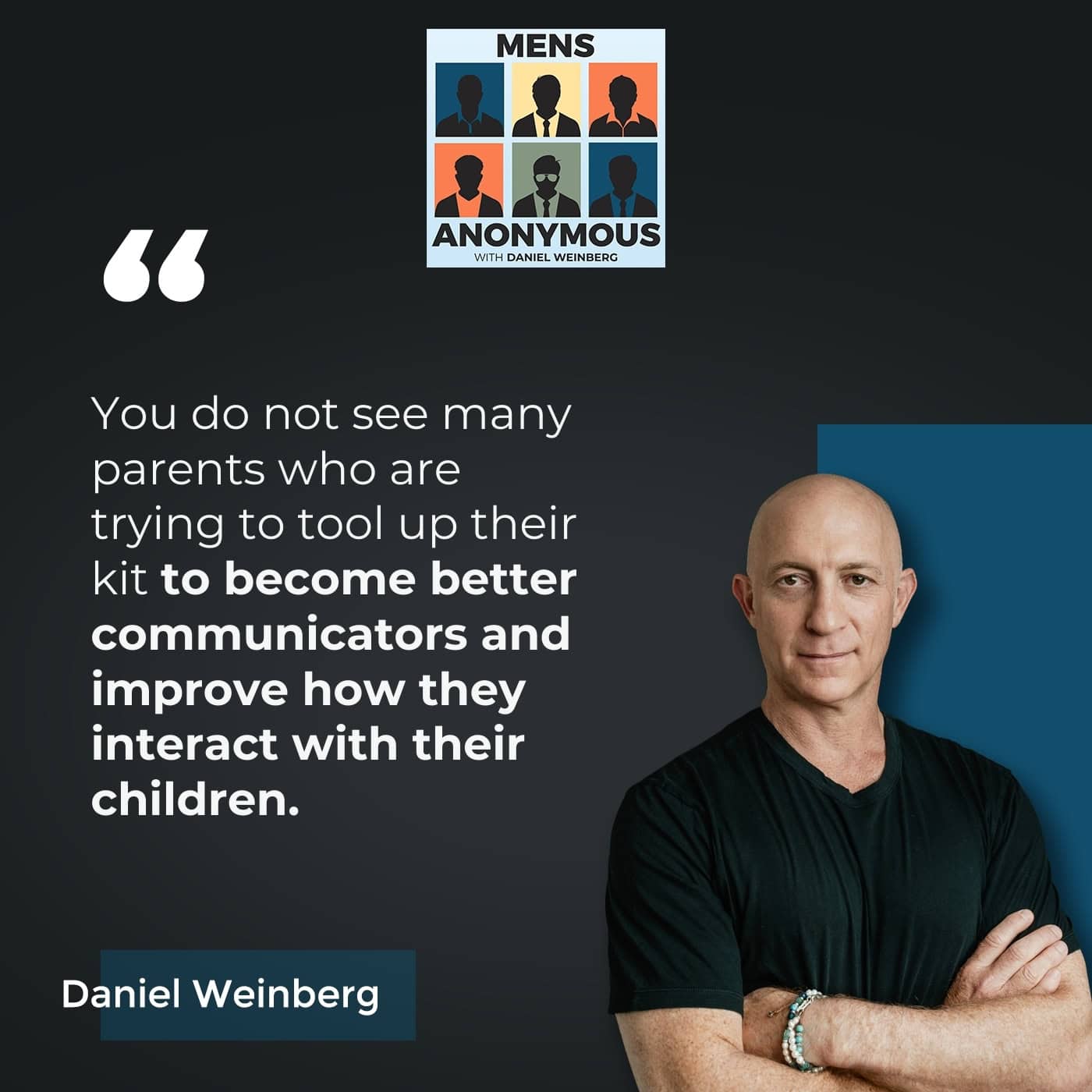
You guys have become professional parents, where you’ve gone deep into what you can do to make your son’s life and your daughter’s life to give them the best opportunity at being the best versions of themselves. More from the perspective of the parents, what can you do as parents to enable that outcome? For me, it’s very touching and inspiring. Hopefully, there are parents out there who take a leaf out of your book and try to think about parenting in the same way that you guys have.
For the readers who are in the same situation, get on all the community groups. Start following. Start finding out. You’ll realize that there’s 1 in 36 people who are on the spectrum. There’s a huge support group. There are also a lot of interesting tips. I’m on Instagram reels where people are giving me these tips that you get for different ages. Also, that difference is not a deficit. It’s a different way of being in the world. When I speak to my son, I put myself in his perspective.
Answering Five Rapid-Fire Questions
That’s very special. At the end of every episode, I ask my guests five different questions. Give me your short response to these questions. Who would you like to say sorry to, given the chance?
Maybe my wife, to be honest.
What are you proud of being or doing in your life?
I’m proud of the father that I am.
That’s obvious.
I’m proud of doing all the things that I do for these kids.
When did you receive kindness while needing it most and expecting it least?
This exact situation. I needed people to also see the world through my perspective and what I was going through. A lot of my family and friends were there to support me.
It means a lot to parents to have the right support from their family and friends. Share on XThey turned up. What did your mother or father teach you that you frequently remind yourself of?
Be good to others, and they’ll be good to you. Kindness goes a long way.
That’s very true. Finally, what is your superpower?
My superpower is that I don’t give up. I look at the glass half full.
You look at the glass overflowing.
That’s even better.
Thank you for your time. I heard your boy enter the house, so I think it’s time for you to go and spend ten minutes of quality time with him during the day. I appreciate the time. Thank you so much for sharing what is a very personal, quite deep, and emotional journey you’ve been on. Thank you.
You’re welcome. Thanks so much for having me.
Cheers.
Cheers.
Important Links

